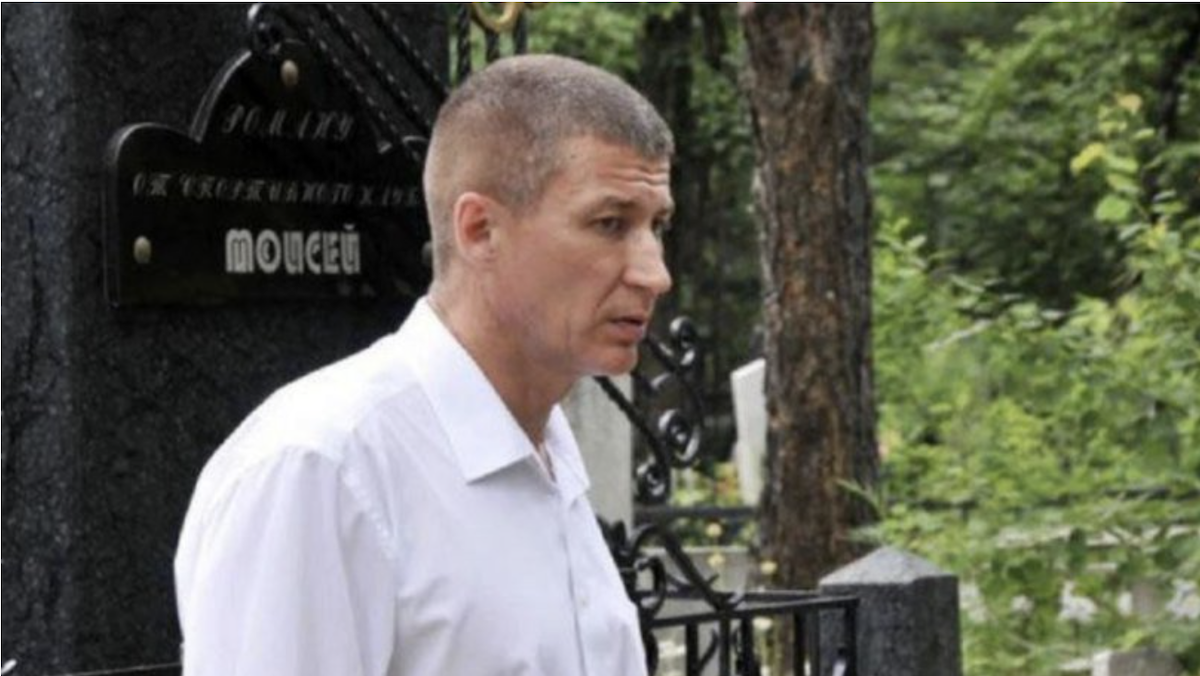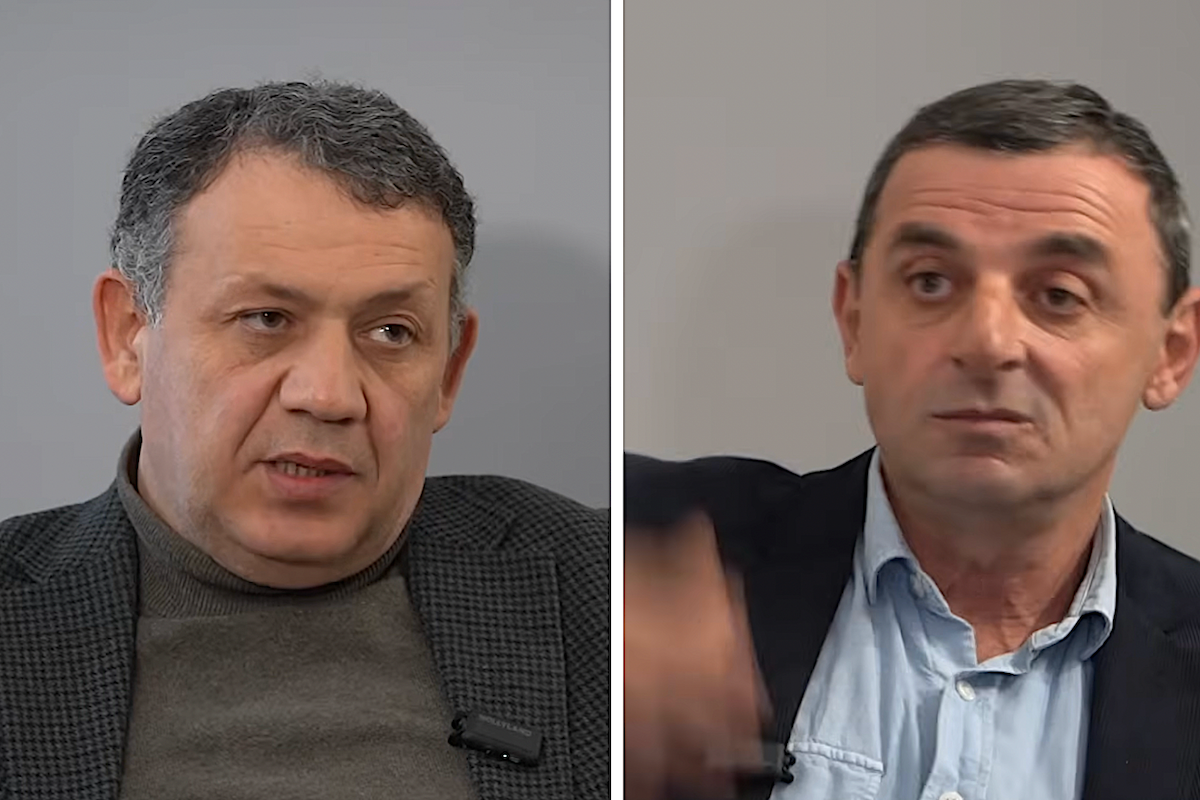Mass departure from Armenia: why people are leaving and what could be next
Migrant laborers leaving Armenia
Since February, thousands of people have been leaving Armenia. In addition to the acute political crisis, this is one of the most actively discussed topics in the country.
Air borders with Russia opened on February 1, 2021 following the shutdown last year due to the coronavirus pandemic. Initially, they were to be open for only a month, but in March it was announced they would be kept open another month.
This created such a stir that the prices of air tickets rose 10 fold – but the number of people wishing to leave did not decrease.
- Dutch entrepreneurs come to Armenia to teach, stay to live
- Indians in Armenia – why they’re coming and what they’re doing here
- Work for people with disabilities – photo report from a cafe in Armenia
The situation in numbers
In February alone, 58,297 passengers departed from Zvartnots and Shirak airports, and 31,901 people arrived in Armenia. Last year, in the same period, 99,065 left, and 96,970 arrived.
In both cases, more passengers flew out, but this year, an additional 26,000 left the country – not just.
“Unfortunately, there is no accurate information on countries of destination because of transit flights,” says Satenik Hovhannisyan, public relations officer at Zvartnots airport.
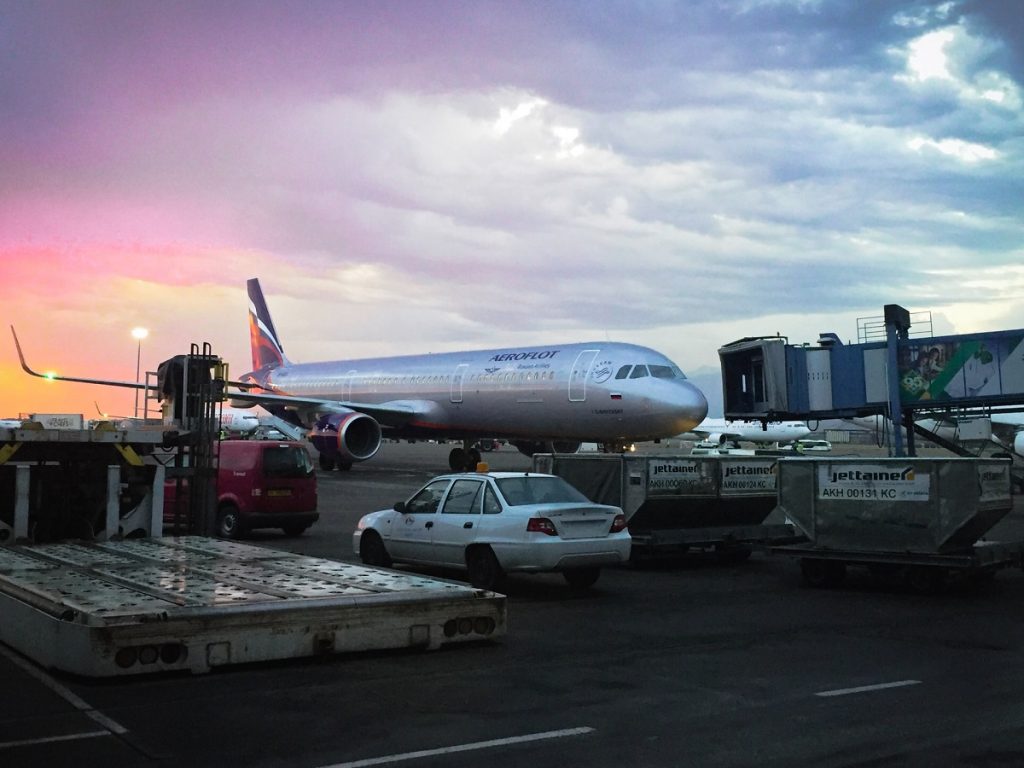
Ticket prices to Russia
Earlier a one-way ticket could be bought for 30-40,000 [$57-76], then in February this year, in just one week, prices rose to 200-450,000 [about $380-857].
“I don’t remember such prices in all my years of work. Earlier, tickets for 150,000 [about $285] were already considered expensive. In past years, prices for Yerevan-Moscow flights mostly fluctuated within the range of 70-90,000 drams [about $133-171],” says Ruzanna Hakobyan, who has been working in an airline ticket sales agency for more than ten years.
According to her, in March, ticket prices dropped somewhat to 150-200,000 drams [about $285-380]:
“I have hardly had any cases of selling tickets to families. Mostly they were bought by people who left to work. They said they travel every year, and this year they were looking forward to the opening of the borders to leave again. No matter how expensive the tickets were, they bought them and said – it is better to leave to work than to stay in Armenia without work, and they will earn this amount there”.
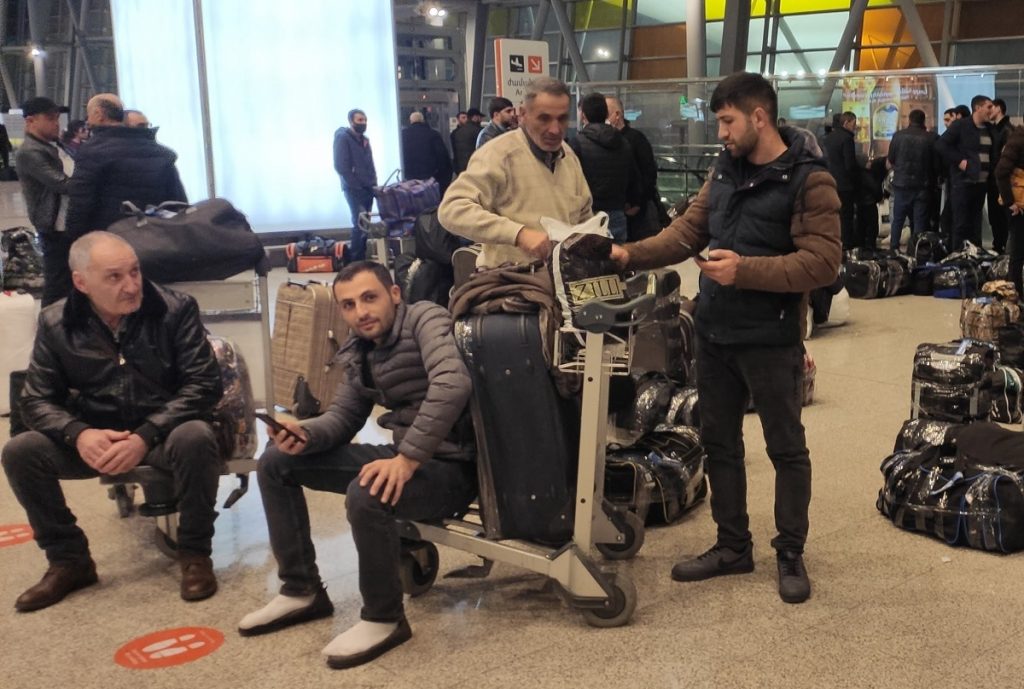
Airport interview
Abgar Martirosyan, who is waiting for departure at the Zvartnots airport, said that for 16 years he has been traveling to Russia, to Ivanovo, to lay asphalt. It’s not just him going – a team of 300 people has been recruited. And the expensive tickets did not become a hindrance: the employer covered the costs for everything.
Abgar says he does not intend to stay in Russia:
“No matter how much we travel, we always come back. Our families are here, we are not going to move them.”
Andranik Shahinyan has been traveling to Russia to earn money for 30 years and also does not intend to uproot his family:
“In my homeland, I can walk with my back straight, but there I am shackled. I send all my earnings home – for the expenses of the family. This is our contribution to the Armenian economy”.
Nairi Sargsyan, 23, is a manager of a construction hypermarket in Russia. In the summer of 2020, she came to Armenia for the funeral of a relative and could not return:
“During this time, I could not find a job where I would be paid as much as I get in Russia. I couldn’t just wait for the borders to be opened.”
There are many newcomers next to the labor migrants who have gone to work in Russia more than once.
Karen Sahakyan, 30, was invited to work as a driver in Yekaterinburg.
“In Armenia, I worked in the law enforcement system, but the salary was not enough, everything went up. While I’m on my own, we’ll see how everything goes, then maybe I’ll take my family,” says Karen, who will be waiting for his wife and two children.
Arevik Tonoyan, 30, is seeing off her husband. He is also leaving for the first time to work and will also work as a driver. In Armenia he had a job, but the pay was low, there was not enough money, so he decided to leave.
“10 years of marriage, three children … We are parting for the first time, I don’t know how it will be, but it’s very hard to endure his departure. So far there are no plans to go with my husband, but if he settles there, things will go well, maybe we will go,” Arevik says.
Expert opinion
Tatevik Bezhanyan, advocate for migrants of the Armenian Caritas organization, speaks of two main reasons for the large number of departures in February:
“We conducted a survey among migrants in July and found out that many of them cannot find work with an adequate salary here, so everyone was waiting for the borders to open in order to leave. The second reason is that Russia announced that it was opening the border for only a month, which is why many were in a hurry to leave.”
Tatevik Bezhanyan does not rule out that at the end of the year there will be “an increase in flows of long-term migrants in Armenia due to flows of short-term migrants.” That is, temporary migrants decide to move their families. This is evidenced by studies carried out in schools.
It turns out that many parents have asked for tutors to give extra help to their children, which is usually the case when they want to transfer their child to school in another country.
Tatevik Bezhanyan says that the desire to leave the country in an unstable economic situation is an expected and natural tendency, even among those who live in favorable conditions. They simply do not see a “desirable future” for themselves and their children. However, as the situation improves, this group of people usually returns.
The coronavirus pandemic has led to the fact that in 2020, for the first time in the past five years, a positive balance of entry into the country of Armenian citizens (42786) and a negative balance of trips abroad (-30,693) was recorded. The figures for the last five years are in the table.

According to Tatevik Bezhanyan, more people returned to Armenia in the fall of 2020 during the second Karabakh war than after it. The recession began after the defeat in the war:
“If at first they said ‘let’s go to save our homeland’, then after signing the document on the cessation of hostilities they think ‘we must leave for the sake of the future of the children’.
According to the expert, after the so-called April 2016 war, there were similar trends in migration flows in Armenia, and today’s outflow was inevitable:
“It’s just difficult to predict how events will develop in 2021. Many have the desire to leave, but the coronavirus has not yet been overcome, the countries of the world are still economically unstable and are not ready to accept migrants.”
- Leaving the US for Armenia – four different but similar stories
- Deported from the EU – how Armenians try to stay abroad
Optimists who moved to Armenia from abroad
Recently, in parallel with the flow of people leaving the country, there has been a reverse process, albeit not so massive. Representatives of the Armenian Diaspora are moving to Armenia for permanent residence.
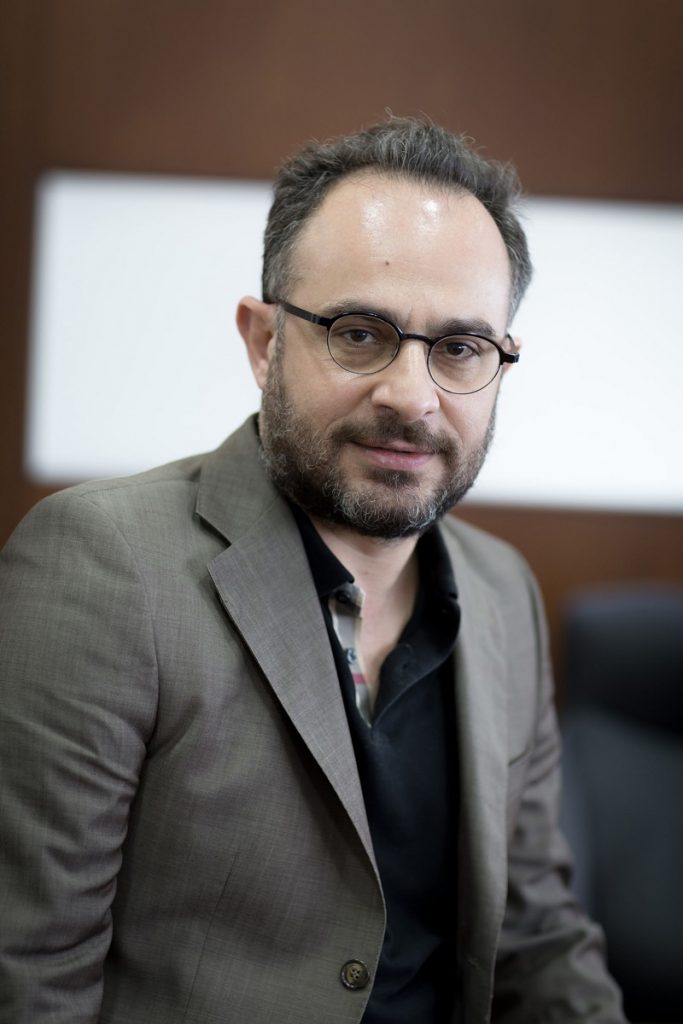
44-year-old Armenian financier from Lebanon Vrezh Boyajian moved to Armenia in August 2020 and founded his own business here.
His agency deals with international transport. Vrezh had plans to expand the business when the war broke out. However, he is optimistic, says the war has given new impetus to his business:
“The economy of Armenia, of course, suffered, but one should not forget that if there are three million Armenians living here, then there are seven million of them outside the country. And they want to develop their homeland, more often they buy Armenian products. And this is where our company comes to the rescue. Armenian producers should not limit their target audience only to the local population, we should not forget about the representatives of the diaspora.”

32-year-old Artur Galstyan is also optimistic. He moved to Armenia from Iran on September 26, 2020 – a day before the start of the Karabakh war.
Arur planned to quickly obtain citizenship and find a job, but the war thwarted all plans. The issue of citizenship has not yet been resolved, and it has not yet been possible to find a job. Wherever he turns, they say that they cannot hire new employees – the situation is unstable. But he does not lose hope:
“I came to Armenia with great hopes. In two years, six of my friends, Armenians from Iran, moved here, work, study, even got married, and are very happy. They became an example for me.”
Artur is a food production specialist and sees great potential in this area in Armenia, looking for a job in his specialty.
“You need to be flexible and not say that only 2 + 2 = 4. 5-1 will also be 4, 16/ 4 – too. You do not need to be limited to one direction, there are a thousand ways to get things done.
When you dwell on one thing, you will not achieve success. The Iranians have a proverb: ‘If you want to start a business, be ready for anything.’ I decided to move to Armenia and am ready for anything: unemployment, war, earthquake,” says Artur.













